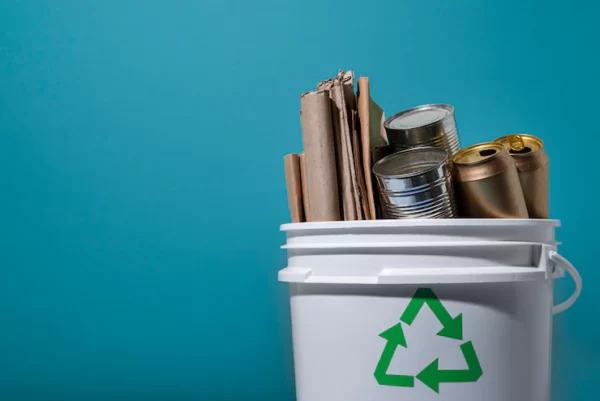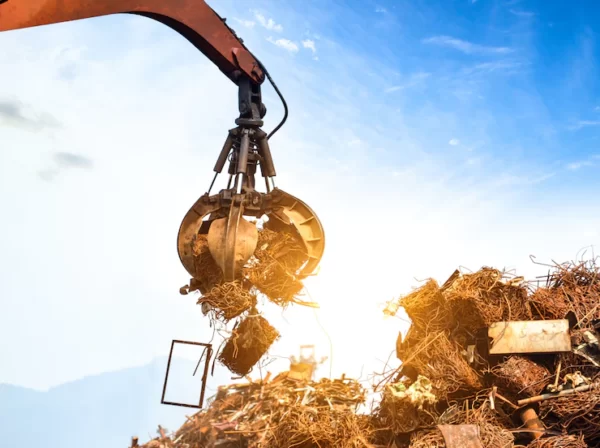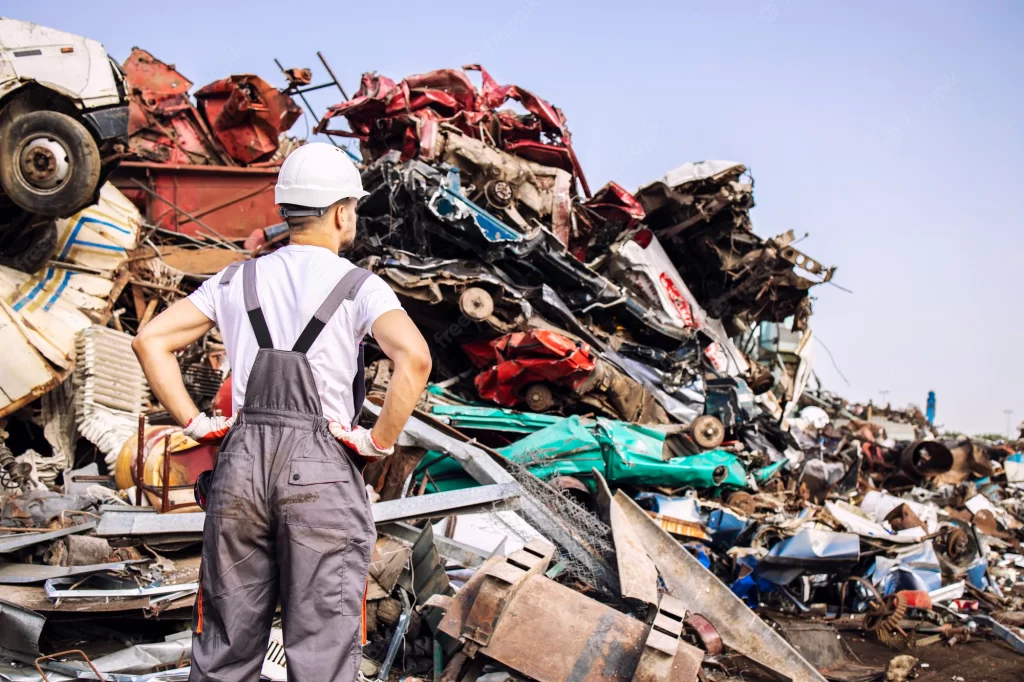Metal Recycling
Metal recycling as the best material found in waste needs more attention and growth. This industry has a major share in exports in some countries and reduces the amount of stone drilling. Commercial industries and citizens can help maintain the health and beauty of the work environment and life process by delivering waste to special centers, in addition to receiving money. They can also contribute to the growth and progress of the waste recycling industry in Iran. Today, the environmental and economic value of dry waste cannot be denied. Plastic, glass, paper, cardboard, scrap metals abandoned with the advancement of technology affect the human living environment. In such a way that the environment is less damaged and people benefit more. The metal recycling industry is an important part of the profitable cycle.
An aluminum can is always a can until it is recycled. So recycling it is a safe and profitable economic activity. The recyclability of metals is not the same. For example, about 67% of scrap steel and 35% of copper are recycled. But in general, the energy used to recycle metal waste is less than the energy required for production.
Metal Recycling Steps

1. Collect
Due to the importance of scrap, collection varies and is less often sent by the waste office. The price of iron waste is determined according to the market rate and purity level. In America, vehicles are the largest source of scrap metal. Other recycled sources include steel structures, ships, railways, agricultural tools, and consumer waste.
2. Ordering
It means separating metals from scrap or scraps of different materials. Sensors and magnets are used automatically in the recycling operation. In some cases, the color or weight of the material is used to identify the type of metal.
3. Processing
For further processing, they change the shape of the material, to prepare it for the melting process, and turn it into a melt with less energy. For example, they cut aluminum into small pieces and steel into blocks. The metal is melted in a special furnace, and this process takes from a few minutes to a few hours, depending on the size of the furnace, the temperature, and the volume of the metal.
4. Purification
To ensure the quality of the product, they perform purification on it using different methods such as electrolysis.
5. Strength
After purification, the molten metals are transferred using a conveyor belt for cooling and smoothing. At this stage, the recycled metals come in various forms such as rods.
6. Transportation to Factories
Metals are transported to factories for cooling to be used to produce products.
Recyclable Metals

1. Ferrous Metals
It includes products such as steel, which is obtained from the combination of iron. The quality of metals depends on the purity of the waste materials and the primary components of the manufacturer. Recycled parts are used in parts such as old car bodies, household appliances, building structures and train rails.
2. Non-Ferrous Metals
It includes metals such as aluminum, which does not contain iron and plays an important role in the industry. These metals are less abundant than iron-containing metals and therefore have more value than waste in garbage. In addition to aluminum, which is mostly used in sorting industries, other non-ferrous metals can be recycled, the most important of which are:
2.1. Copper
The use of this metal has a long history. Iran has reserves of copper, which has made the extraction of copper metal more attention than recycling.
2.2. Lead
Lead-acid batteries, also known as therm-optical batteries, are one of the main sources of old lead used in energy storage equipment, vehicles and industrial machinery. Recycled lead becomes soft lead or lead alloys and is mostly used to produce these batteries.
2.3. Nickel
This metal is used in manufacturing industrial solutions, catalysts and batteries and includes various alloys such as nickel, silver and brass. Recently, the recycling of rechargeable batteries such as sealed nickel and cadmium has been booming.
2.4. Titanium
This metal is mostly used to make stainless steel. Its recycled parts are obtained from aircraft bodies, submarines and heat exchanges.
Advantages of Metal Recycling
1. Environmental Protection
The most important advantage of recycling any waste is to protect the environment. Metal waste, such as construction and industrial equipment in business premises, occupies a lot of space and if transferred to the landfill, it reduces the capacity of these places. Most importantly, it is dangerous to leave iron waste in such places, and by rotting and polluting the soil, it can be an important threat to the environment.
2. Employment
Creating employment for a large number of people and making profits for the country through the sale of waste is another advantage of metal recycling. Metal is a universal commodity and the demand for it is constant. Developing countries such as China and India are among the biggest buyers of scrap metal, and it is the supply and demand that increases their value.
Another part of profitability is observed in industrial applications. Industry and construction that use scrap iron or aluminum waste little by little. Road construction, bridge construction, transportation, airplane construction, etc. are among the most important uses of these metals.
3. Prevent Water Pollution
Another application of recycling is the detoxification of waste water and industrial waste water. Making different containers from iron waste helps to preserve the environment and reduce the need for digging and mining.
Up To Sum
Metal recycling, as the best material found in waste, needs more attention and growth. This industry has a major share in exports in some countries and reduces the amount of stone drilling. Commercial industries and citizens can contribute to the growth and development of the waste recycling industry in Iran by delivering waste to special centers, in addition to receiving money, to help maintain the health and beauty of the work environment and life process.


